[PLATE: PTOLEMY.]
The career of the famous man whose name stands at the head of this chapter is one of the most remarkable in the history of human learning. There may have been other discoverers who have done more for science than ever Ptolemy accomplished, but there never has been any other discoverer whose authority on the subject of the movements of the heavenly bodies has held sway over the minds of men for so long a period as the fourteen centuries during which his opinions reigned supreme. The doctrines he laid down in his famous book, "The Almagest," prevailed throughout those ages. No substantial addition was made in all that time to the undoubted truths which this work contained. No important correction was made of the serious errors with which Ptolemy's theories were contaminated. The authority of Ptolemy as to all things in the heavens, and as to a good many things on the earth (for the same illustrious man was also a diligent geographer), was invariably final.
Though every child may now know more of the actual truths of the celestial motions than ever Ptolemy knew, yet the fact that his work exercised such an astonishing effect on the human intellect for some sixty generations, shows that it must have been an extraordinary production. We must look into the career of this wonderful man to discover wherein lay the secret of that marvellous success which made him the unchallenged instructor of the human race for such a protracted period.
Unfortunately, we know very little as to the personal history of Ptolemy. He was a native of Egypt, and though it has been sometimes conjectured that he belonged to the royal families of the same name, yet there is nothing to support such a belief. The name, Ptolemy, appears to have been a common one in Egypt in those days. The time at which he lived is fixed by the fact that his first recorded observation was made in 127 AD, and his last in 151 AD. When we add that he seems to have lived in or near Alexandria, or to use his own words, "on the parallel of Alexandria," we have said everything that can be said so far as his individuality is concerned.
Ptolemy is, without doubt, the greatest figure in ancient astronomy.
He gathered up the wisdom of the philosophers who had preceded him.
He incorporated this with the results of his own observations, and illumined it with his theories. His speculations, even when they were, as we now know, quite erroneous, had such an astonishing verisimilitude to the actual facts of nature that they commanded universal assent. Even in these modern days we not unfrequently find lovers of paradox who maintain that Ptolemy's doctrines not only seem true, but actually are true.
In the absence of any accurate knowledge of the science of mechanics, philosophers in early times were forced to fall back on certain principles of more or less validity, which they derived from their imagination as to what the natural fitness of things ought to be.
There was no geometrical figure so ****** and so symmetrical as a circle, and as it was apparent that the heavenly bodies pursued tracks which were not straight lines, the conclusion obviously followed that their movements ought to be circular. There was no argument in favour of this notion, other than the merely imaginary reflection that circular movement, and circular movement alone, was "perfect," whatever "perfect" may have meant. It was further believed to be impossible that the heavenly bodies could have any other movements save those which were perfect. Assuming this, it followed, in Ptolemy's opinion, and in that of those who came after him for fourteen centuries, that all the tracks of the heavenly bodies were in some way or other to be reduced to circles.
Ptolemy succeeded in devising a scheme by which the apparent changes that take place in the heavens could, so far as he knew them, be explained by certain combinations of circular movement. This seemed to reconcile so completely the scheme of things celestial with the geometrical instincts which pointed to the circle as the type of perfect movement, that we can hardly wonder Ptolemy's theory met with the astonishing success that attended it. We shall, therefore, set forth with sufficient detail the various steps of this famous doctrine.
Ptolemy commences with laying down the undoubted truth that the shape of the earth is globular. The proofs which he gives of this fundamental fact are quite satisfactory; they are indeed the same proofs as we give today. There is, first of all, the well-known circumstance of which our books on geography remind us, that when an object is viewed at a distance across the sea, the lower part of the object appears cut off by the interposing curved mass of water.
The sagacity of Ptolemy enabled him to adduce another argument, which, though not quite so obvious as that just mentioned, demonstrates the curvature of the earth in a very impressive manner to anyone who will take the trouble to understand it. Ptolemy mentions that travellers who went to the south reported, that, as they did so, the appearance of the heavens at night underwent a gradual change. Stars that they were familiar with in the northern skies gradually sank lower in the heavens. The constellation of the Great Bear, which in our skies never sets during its revolution round the pole, did set and rise when a sufficient southern latitude had been attained. On the other hand, constellations new to the inhabitants of northern climes were seen to rise above the southern horizon. These circumstances would be quite incompatible with the supposition that the earth was a flat surface. Had this been so, a little reflection will show that no such changes in the apparent movements of the stars would be the consequence of a voyage to the south. Ptolemy set forth with much insight the significance of this reasoning, and even now, with the resources of modern discoveries to help us, we can hardly improve upon his arguments.














